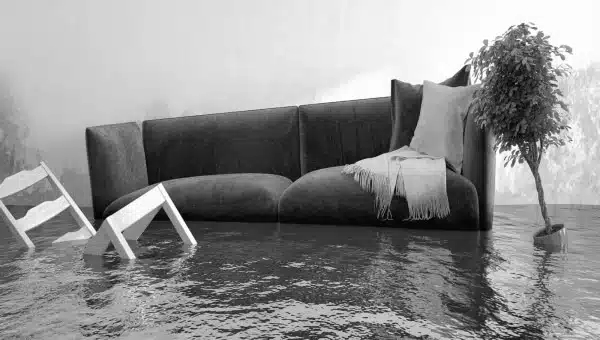As a new homeowner, you’re starting to discover that owning a home is a mixed bag of joys and challenges. Among the array of appliances that require your attention, the water heater can often become the unsung hero of your household until it malfunctions. When that hot shower suddenly turns cold, you know there’s an issue that needs immediate attention. But what could be causing your water heater failure? This post will explore some common culprits and give you a better understanding of how to troubleshoot these problems.
Table of Contents
Lack of Regular Maintenance
Your water heater, much like a reliable car, thrives on regular maintenance. Imagine cruising down the highway and suddenly realizing you haven’t had your oil changed in over a year. Yikes! A similar scenario could occur with your water heater. Just a simple annual flush can make a world of difference, whisking away pesky debris and keeping your heater humming along smoothly.
However, neglecting this straightforward maintenance chore could put your water heater on the fritz, resulting in lukewarm showers or even a complete system breakdown. If the concept of ‘water heater maintenance‘ is entirely new to you, don’t sweat it. This is your chance to grab your homeowner’s handbook or dial up a professional to guide you through a proper maintenance check. Your water heater will thank you, and so will your future self, basking in a steady stream of warm water.
Sediment Build-Up
Imagine having a hidden treasure at the bottom of your water heater tank. But instead of shiny coins and dazzling gems, you have a pile of minerals like calcium and lime. Unfortunately, this ‘treasure’ is more of a curse for your water heater. This build-up, known as sediment, can accumulate over time, creating a barrier at the bottom of your tank. This unsolicited barrier forces your heater to work overtime, reducing its efficiency and potentially hastening its journey to the water heater graveyard.
Symptoms of this ailment might include a diminishing supply of hot water or your water heater belting out strange sounds that make you think it’s auditioning for a horror movie. Fear not! A solid flush of your water heater can usually banish this sediment specter, restoring peace and efficiency to your water heating realm. Remember, dealing with water and electricity can be a perilous mix, so don’t hesitate to enlist a professional if you’re unsure about the process.

Faulty Thermostat
You might have experienced this – you’ve lathered up for a warm shower, only to be greeted by a chilling surprise or a scalding jolt. If that rings a bell, the chances are your water heater’s thermostat could be pulling tricks on you.
The thermostat, akin to a maestro of an orchestra, controls the temperature symphony in your water heater. When it misbehaves, it can churn out a less than harmonious mix of overly hot or disappointingly cool water. In extreme cases, it might even take a hiatus, causing your water heater to cease operation altogether.
Erratic water temperatures can indeed signal a faulty thermostat. Just a word of caution, the thermostat isn’t your average DIY job due to the electrical intricacies involved. It might be a safer bet to call in a professional who’s well-versed with these mini maestros. Remember, your safety should always take center stage!
Related Content: Noisy Water Heater
Failure Due to Leaks
If you’ve ever come across a puddle of water near your water heater, it’s likely that you’re dealing with the infamous foe known as leaks. Much like a sneaky nemesis from a superhero movie, leaks are subtle, harmful, and can strike at any time.
They might arise due to a variety of reasons such as faulty valves playing the traitor, the tank walls surrendering to corrosion, or loose fittings losing their grip. These sneaky leaks don’t just leave behind a watery mess, they also wage a silent war against your water heater’s functionality.
Sure, you might shrug off a small puddle here and there, but be warned! It’s often these seemingly innocent drips that can lead to substantial water damage, or even worse, a dysfunctional water heater. So, put on your detective cap and keep a keen eye out for any suspicious water spots or puddles near your heater.
Bear in mind, water has a knack for finding its way into the smallest of crevices, making it sometimes challenging to identify the source of a leak. However, don’t let that deter you. By promptly investigating and addressing any potential leaks, you can prevent your home from turning into an indoor swimming pool and save your water heater from an untimely demise.
But if playing water detective feels overwhelming, there’s no shame in calling in a professional to help hunt down and fix those pesky leaks. So, keep those eyes peeled and always be ready to tackle those elusive leaks head-on!
Age of Water Heater
Just as fine wines get better with age, water heaters, unfortunately, do not share the same narrative. They do have a “best before” date, which generally falls somewhere between 8 to 12 years. With each passing year, your trusty water heater’s components start to show signs of fatigue, its performance begins to take a nosedive, and the chances of it abruptly calling it quits become alarmingly high.
Picture your water heater as an enthusiastic marathon runner. Initially, it’s brimming with vigor, providing you with those soothing hot showers with relative ease. However, as it approaches its finish line (the 8-12 year mark), it begins to pant, it struggles to keep pace, and eventually might even collapse before the race ends.
It’s during this aging phase that some crucial decisions need to be made. Sure, you could play the doting homeowner and invest in multiple repairs, essentially providing your old heater with life support. But, have you considered the alternative? Might it be more economical to retire your aging water heater and invest in a sprightly, more efficient successor?
Think of it this way – you wouldn’t continually repair a decades-old car when you could invest in a more reliable and fuel-efficient model, would you? Similarly, with water heaters, sometimes it’s best to know when to raise a toast to the old guard, thank it for its years of service, and gracefully usher in the new water heater installation.
FAQs About Water Heater Failure
Why would a water heater stop working?
To troubleshoot a total malfunction of the water heater, inspect the circuit breaker for electric heaters or examine the pilot light for gas heaters. Typically, when the power is out, the entire system comes to a halt, resulting in anxiety for the homeowner. Fortunately, the necessary repairs can be easily accomplished.
How often do water heaters fail?
If your tank water heater has exceeded a lifespan of 12 years, it is advisable to contemplate its replacement. A tank water heater tank can have a lifespan of 10 to 12 years with adequate maintenance. The lifespan of a tankless water heater can exceed 20 years.
Can I replace my water heater myself?
Even the most intrepid DIY enthusiasts should refrain from attempting to install a water heater. Proficiency in plumbing, electrical work, and construction is necessary for the installation of a water heater. In addition, it is imperative to obtain a permit, undergo an inspection conducted by your town, and possess a comprehensive knowledge of both state and local construction codes.
Conclusion
Remember, water heaters don’t come with a retirement plan. It’s up to you to recognize the signs of an aging heater and make the decision that best suits your home and your wallet. It’s all about finding that delicate balance between holding on and letting go. Don’t hesitate to consult a professional to help weigh your options and make the most informed decision. After all, ensuring a consistent supply of hot water shouldn’t be a game of chance, should it?
